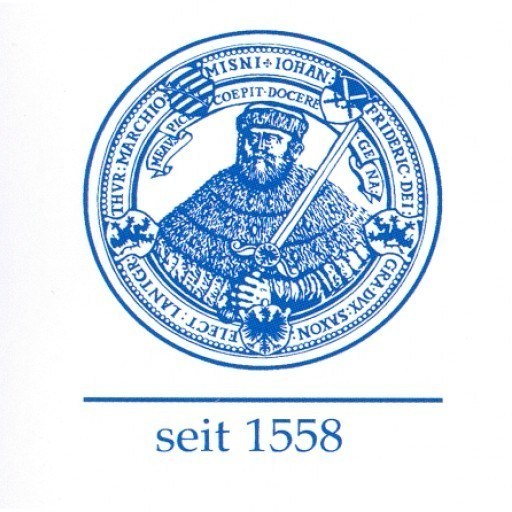Photos of university
The Biochemistry (Molecular Life Sciences and Molecular Oncology) programme at Julius-Maximilians-Universität Würzburg offers a comprehensive and in-depth education in the fundamental principles and advanced concepts of biochemistry, molecular biology, and oncology. Designed for students passionate about understanding the molecular mechanisms that underpin health and disease, this programme combines rigorous theoretical coursework with practical laboratory training, preparing graduates for diverse careers in research, industry, healthcare, and academia.
Throughout the course of study, students explore key topics such as protein structure and function, metabolic pathways, genetic regulation, cell signaling, and the molecular basis of cancer. Emphasizing interdisciplinary approaches, the programme integrates knowledge from chemistry, biology, and medicine, fostering a holistic understanding of complex biological systems. Students gain proficiency in modern experimental techniques including DNA/RNA analysis, protein purification, microscopy, and bioinformatics, equipping them with valuable skills for research and diagnostics.
The curriculum is structured to promote critical thinking, problem-solving, and independent research capabilities. In addition to core modules, students have opportunities to participate in project work, internships, and collaborations with research institutes, offering real-world experience and networking possibilities. The university’s strong emphasis on research ensures access to state-of-the-art laboratories and expert faculty members actively engaged in pioneering projects in molecular and cellular biology, cancer research, and biomedical sciences.
Graduates of this programme are well-prepared to pursue doctoral studies, specialized training, or careers in biotechnology, pharmaceutical industry, clinical research, or university research environments. The programme's international orientation and multidisciplinary focus reflect the evolving landscape of modern biochemistry and molecular oncology, enabling students to contribute meaningfully to scientific advancements and healthcare improvements worldwide.
Educational organisation
Under the auspices of the Faculty of Biology, we have set up a highly competitive, international recruitment process and provide the admitted students with access to more than 180 principal investigators who translate their ongoing research into the following programme:First semester
- lecture series
"Research Concepts in Life Sciences" (10 ECTS)
- lab course
The lectures are taught by principal investigators who are also members of the Graduate School of Life Sciences. The lab courses will take place within their research labs. During this first semester, students will decide which of the various fields of the life sciences they want to pursue, exemplified by the five sections of the GSLS.
Candidates averaging a mark of 1.7 or better in the first semester may immediately proceed to work on the MSc thesis in the second semester. All others will continue taking courses in the second and third semesters, before finishing their MSc programme with a thesis in the fourth semester.
Second semester and following
The Master's thesis project (25 ECTS) will take place in one of the laboratories of the >200 participating research groups. If the thesis is evaluated with 1.3 or better, candidates may proceed directly to a doctoral project.
The Master's thesis defence (5 ECTS) and the other remaining 60 ECTS credit points may then be obtained in parallel with doctoral research. This is facilitated by earning credits for programme elements which are obligatory anyway during the doctoral study programme, such as special lectures and courses provided by the various GSLS sections.
Important note: current success rate for fast track is approx. 75%. Make sure you have enough financial resources to cover two years of study. Even fast track students may need more than one year until transition to a funded PhD project is possible.
Study abroad unit(s)
No obligatory/default study abroad units, but encouragedForms of assessment
Written exams for lectures and seminars, grading of protocols for lab courses, graded Master's thesis and oral examinationCourse objectives
Fast track students will have obtained the competence to perform research at the PhD level after two semesters. Students finishing the MSc programme without entering a PhD project after the second semester will be able to finish their MSc in the regular way.Qualifications obtained correspond to the European Qualification Framework Level 7: http://ec.europa.eu/eqf/compare_en.htm
Language requirements
Native speaker or any of the following:- Test of English as a Foreign Language (TOEFL) with a minimum score of 590 paper-based or 240 computer-based or 95 Internet-based
- International English Language Test System (IELTS) with a score of at least 6.5
- Cambridge Certificate in Advanced English (CAE)
- other significant evidence of English proficiency. We reserve the right to reject any evidence other than the certificates listed above.
Academic requirements
Degree/credit requirements:In order to be admitted, by the time of admission (not application!) you must have finished a BSc study programme of at least three years with an equivalent of 180 credit points according to ECTS (European Credit Transfer System). If you apply from outside Europe, your BSc study programme will be considered as equal, but will be evaluated for equivalence in case of doubt. An essential authority in this process is the federal "Zentralstelle für ausländisches Bildungswesen". See: http://www.kmk.org/zab.
If you have not yet finished your BSc at the time of application, you need to provide documents which prove that you have completed 5/6 of your regular study programme (e.g., 150 of 180 ECTS credit points in European study programmes).
Subject requirements:
Your BSc programme must be in biology or at least have a special emphasis/specialisation/major in some aspect of the life sciences and natural sciences (e.g., biophysics, biotechnology, pharmacology, etc.) comprising practical research experience in working in a natural science laboratory. Please note that purely medical study programmes of any kind will usually not be considered to be sufficient formal preparation for our study programme except if you can prove some experimental research experience.
Enrolment fees
104 EUR per semester (as of summer semester 2016). Fee includes a semester ticket covering public transportation in the Würzburg metropolitan area.Costs of living
Approx. 650-750 EUR per monthJob opportunities
See: http://www.international.uni-wuerzburg.de/studieren_in_wuerzburg/studium_mit_abschlussziel/vor_der_abreise/kosten_und_finanzierung/Funding opportunities within the university
From the third semester onwards, fast track students are fully funded as PhD students (1,200-1,500 EUR after deductions, depending on funding source).In the second semester, there are some very limited funding opportunities for fast track students undertaking their Master's thesis project in research areas funded by DFG Collaborative Research Centres or DFG Research Training Groups (800 EUR/month). However, you must not rely on such funding because availability varies depending on the field of research and current funding.
Arrival support
A welcome ceremony is offered to all international students of the University of Würzburg. It includes a sightseeing tour through the city at no charge.The University of Würzburg offers arrival support for international students, including meeting new students at the railway station, filling out forms for enrolment and city registration, etc.
For more information, see: http://www.international.uni-wuerzburg.de/en/studying_in_wuerzburg/information_for_all_foreign_students/find_assistance/student_tutors/#c242426
Services and support for international students
International students are invited to use the university's support service for enrolment and visa affairs, for orientation in town, etc. During the first weeks in Würzburg, tutors are provided to help with the following:- pick-up at the train station
- support with moving into the hall of residence (get the key to your room, contact with the caretaker)
- accompanying students to officials (town hall, health insurance, Studentenwerk, etc.)
- assistance with filling out necessary forms (enrolment at university, residence permit, etc.)
- answers to questions about everyday life in the city of Würzburg (shopping, how to open a bank account, free time/sport and much more)
For more information, see: http://www.international.uni-wuerzburg.de/en/studying_in_wuerzburg/information_for_all_foreign_students/find_assistance/student_tutors/
The senior adviser to international students (International Office) can be contacted with questions and problems and will do his or her best to provide adequate assistance throughout your stay. He or she is also in charge of coordinating a semester programme, which includes cultural events, excursions, guided library tours, etc.
Several other institutions within and closely related to the university offer services for international students: http://www.international.uni-wuerzburg.de/en/studying_in_wuerzburg/information_for_all_foreign_students/activitiesfriends/get_connected/#c365184
At the University of Würzburg, international students are well taken care of.
Accommodation
International students can apply for a place in a student hall of residence or find private accommodation in Würzburg. Prices for housing are reasonable and range from 150 to 350 EUR per month for a single room. Information on housing can be found online at:http://www.international.uni-wuerzburg.de/en/studying_in_wuerzburg/degree_programs_at_the_university_of_wuerzburg/before_arrival/living/







